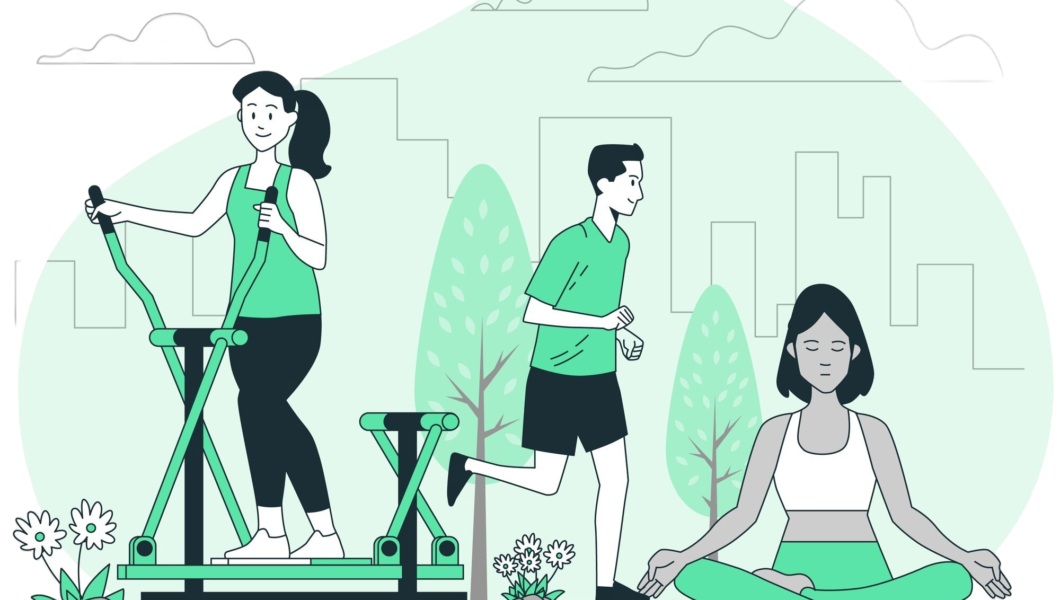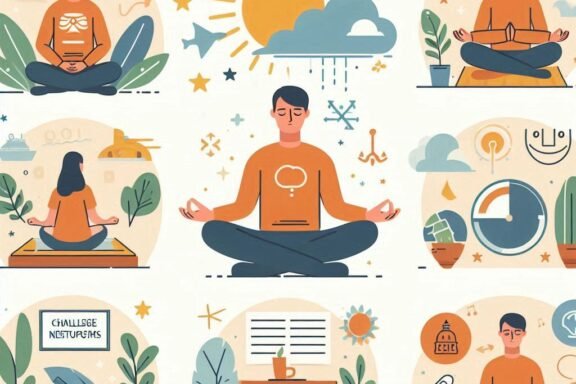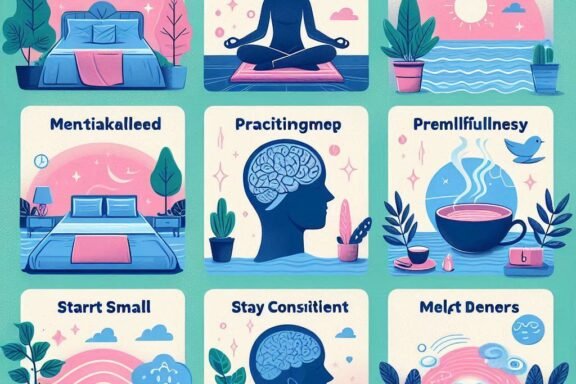The Healing Power of Music: A Self-Care Practice for Your Mind and Soul
In the fast-paced world we live in today, finding effective ways to relax, recharge, and nurture your emotional well-being is essential. While traditional forms of self-care—such as meditation, exercise, and healthy eating—are incredibly beneficial, one often-overlooked practice is listening to music. Music has long been known to have therapeutic effects, and in recent years, research has confirmed what many of us instinctively know: music has the power to heal, reduce stress, and boost mental health.
Incorporating music into your self-care routine can be an incredibly easy and enjoyable way to enhance your overall well-being. Whether you’re unwinding after a long day, meditating, or simply seeking emotional comfort, music can help balance your mind, body, and soul. In this blog, we’ll explore how music serves as a powerful tool for self-care, promoting relaxation, mindfulness, and emotional healing.
1. Music and Its Impact on the Brain: A Natural Stress Reliever
When we listen to music, our brains respond in profound ways. Certain melodies and rhythms can trigger the release of dopamine, the brain’s “feel-good” neurotransmitter, which helps improve mood, reduce stress, and increase feelings of happiness. Music also engages various areas of the brain, including those responsible for memory, emotion, and cognitive function.
Research has shown that listening to calming music can lower cortisol levels (the stress hormone), reduce heart rate, and even lower blood pressure. These physiological changes help promote relaxation and reduce anxiety, making music a valuable self-care tool for managing stress.
How Music Affects Your Mood:
- Uplifting Tunes: Upbeat music with fast tempos and positive lyrics can elevate your mood, boost energy levels, and make you feel more motivated and happy.
- Soothing Sounds: Slow, gentle music (such as classical or acoustic) can calm the nervous system, helping you unwind after a stressful day and prepare for restful sleep.
- Sad or Reflective Music: While it may seem counterintuitive, listening to melancholy music can help you process difficult emotions, making you feel understood and less alone in your feelings. It can act as an emotional release, allowing you to cry and heal.
By consciously choosing the right type of music for your emotional state, you can use music as a mood regulator that supports your mental and emotional health.
2. Music for Mindfulness and Meditation: Enhancing Your Self-Care Practice
Mindfulness—the practice of being fully present and aware of the moment—is a cornerstone of self-care. Music, when used intentionally, can enhance your mindfulness practice, helping you stay grounded and focused during meditation or other relaxation exercises.
Many people use ambient music or calming instrumental tracks during meditation to help guide their practice. The rhythm and sound of the music provide a focal point, making it easier to quiet the mind and cultivate a sense of peace.
Benefits of Using Music for Meditation:
- Deepens Relaxation: Soft, instrumental music helps slow the breath and induce a meditative state. It can calm the body’s fight-or-flight response, lowering stress and anxiety.
- Promotes Focus: Certain types of music, such as binaural beats or theta waves, are known to synchronize brain activity and enhance focus, which can improve meditation practice.
- Emotional Release: Music that matches your mood or intentions can help you access deep emotions during meditation, making it easier to process difficult feelings.
If you’re new to mindfulness, consider creating a playlist of calming music or sounds (like nature sounds or Tibetan singing bowls) to help deepen your practice. Even just 10–15 minutes a day of mindful listening can have a profound impact on your sense of inner peace.
3. The Role of Music in Emotional Self-Care: Healing Through Sound
When it comes to emotional self-care, music acts as a cathartic release for pent-up emotions. Whether you’re feeling sad, anxious, or overwhelmed, music can provide an outlet for those feelings and help you process them more effectively.
Music as an Emotional Companion:
- Expressing Emotions: Sometimes, it’s hard to find the right words for how we feel. Music gives us the language we need. Songs with lyrics that resonate can help us express emotions we may not even fully understand yet.
- Comforting Presence: During times of loneliness or sadness, listening to music can offer a sense of comfort and connection, like a virtual hug for your soul. It reminds us that we are not alone in our feelings.
- Mood Enhancement: On days when you’re feeling down or unmotivated, the right song can serve as a mood booster, lifting your spirits and giving you the energy you need to face the day.
One of the most powerful aspects of music is its ability to transform our emotional state. If you’re feeling stressed, try putting on some music that resonates with you emotionally—whether it’s a playlist of your favorite songs, a genre that makes you feel empowered, or soothing instrumental music that helps you relax.
4. Music for Movement: Dance and Exercise as Self-Care
Music can also be a great motivator for physical self-care. Whether it’s dancing to your favorite beats, going for a jog with your headphones on, or doing yoga with calming instrumental music in the background, incorporating music into your exercise routine can make movement more enjoyable and effective.
How Music Enhances Physical Activity:
- Boosts Energy: Upbeat, high-tempo music can increase your energy levels, making it easier to power through a workout, jog, or brisk walk.
- Improves Performance: Studies have shown that listening to music while exercising can improve endurance and performance by helping you focus and stay motivated.
- Reduces Perceived Effort: Music has the power to distract your mind from fatigue, making exercise feel less strenuous. It helps you enter a “flow state,” where the activity becomes more about the enjoyment of movement than the effort required.
If you’re feeling sluggish or low-energy, consider creating a workout playlist with songs that inspire you to move. The right beats can make your exercise routine feel like less of a chore and more of a self-care celebration.
5. Creating a Self-Care Playlist: Curating Your Own Music for Wellness
One of the easiest ways to incorporate music into your self-care routine is by creating a playlist that suits your needs. Whether you want to relax, energize, or reflect, curating a playlist of songs that align with your mood or self-care intentions can enhance your emotional and mental wellness.
Tips for Curating Your Self-Care Playlist:
- Choose songs based on mood: If you’re feeling stressed, opt for calming instrumental or classical music. For moments when you need energy, go for upbeat, high-energy songs.
- Mix genres: Don’t be afraid to combine different genres, from classical to pop to nature sounds. The key is to find music that resonates with your emotions and supports your current self-care goals.
- Consider mindfulness music: You can create a playlist specifically for meditation or relaxation. Look for sounds that promote mindfulness, like ambient music, nature sounds, or binaural beats.
- Add songs that lift your spirits: Include songs that make you feel empowered, happy, or loved. These tracks can serve as emotional anchors when you’re feeling low.
The process of creating your own playlist can also be therapeutic, giving you an opportunity to reconnect with your emotions and personal preferences. Your playlist can serve as a soundtrack for your self-care rituals, from winding down at night to exercising in the morning.
Conclusion: Music as a Powerful Tool for Self-Care
Incorporating music into your daily self-care routine is a simple yet effective way to improve your emotional, mental, and physical well-being. Music has the power to soothe your mind, uplift your spirits, help you focus, and even heal your heart. Whether you’re listening to calming melodies during meditation, dancing to your favorite tunes for energy, or using music to process emotions, it’s clear that sound can be an essential part of your self-care toolkit.
So, the next time you’re feeling stressed, anxious, or overwhelmed, turn to music as a tool for relaxation, reflection, and emotional healing. Your mind, body, and soul will thank you for it.







No Comments